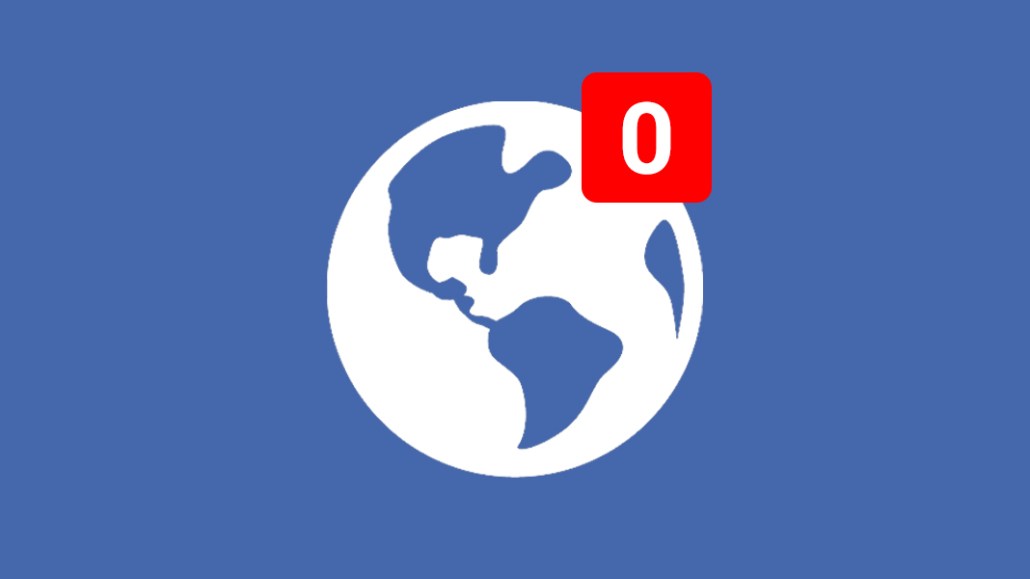Secure your place at the Digiday Publishing Summit in Vail, March 23-25
5 things we learned about Facebook and fake news this year

This year, Facebook faced a backlash over enabling fake news and racist ads, got hauled in front of Congress for spreading Russian propaganda and found itself under the attack from European regulators. And that’s not to say anything of advertisers and publishers standing up to the tech giant over its measurement screw-ups and dominance of their content distribution. Here are five things we learned from Facebook’s annus horribilis:
Tech has too much faith in tech
A deeply seated belief running through Silicon Valley is the idea that tech will make the world a better place. Facebook may help people stay in touch with loved ones, spread democratic movements and help the marginalized find community, but the now-unavoidable truth is, humans can use tech for ill just as much as they can for good, as Facebook’s past year made abundantly clear. This belief caught Facebook flat-footed when it realized how much its platform was being abused.
Facebook’s strength is also a liability
Facebook’s stated goal has been to connect the world. But the scale that made Facebook an advertising powerhouse also works against it. Russian propagandists, racists and fake-news peddlers wouldn’t use it if it weren’t reaching nearly 1.4 billion daily active users to begin with. With that kind of scale, policing all the garbage that runs through the platform is unwieldy (or at least runs counter to profits). Facebook’s decision to reward sharing on the platform inadvertently fed the spread of fake news as well. Its size also makes it a bigger target for criticism. Live by the sword, die by the sword.
Fake news underscores Facebook’s role as a news source
The fake-news problem made us aware that more people are getting their news from Facebook and other social media platforms. Sixty-seven percent of Americans get at least some of their news from social media, up from 62 percent a year earlier, according to Pew Research Center. Facebook is the biggest pathway to news, with 45 percent saying they get news there, followed by 18 percent saying they get news on YouTube and 11 percent on Twitter. And people’s confidence about their ability to spot fake news is misplaced. The more they use Facebook, the more they’re likely to get fooled by fake news on the social network, according to BuzzFeed.
Facebook’s PR efforts haven’t been matched by the results
Facebook has been on a PR offensive this year, allowing users to flag fake news and hiring fact-checkers from organizations including ABC News and The Associated Press to verify suspected false stories. But whatever goodwill that won it with journalists was short-lived. A year in, some of those fact-checkers complain that Facebook exploits them for its own PR and that a lack of transparency on Facebook’s part hinders their work, the Guardian found. Meanwhile, fake news is still being shared on the platform.
Fake news isn’t just political propaganda
A lot of the attention on Facebook was understandably focused on Russian-sourced ads that attempted to influence the U.S. election and cause havoc all around the globe, but there were plenty of other efforts to exploit Facebook’s size to spread falsehoods. As The New York Times reported, anti-abortion site LifeNews.com, with 1 million followers on Facebook, has been one of the more prolific spreaders of fake news and misinformation. Facebook’s definition of fake news and its approach of going after the profit motive don’t necessarily work in the case of sites like this that don’t conform to other fake-news sites and are not motivated by profits but ideology, the Times reported.
More in Media

Media Briefing: As AI search grows, a cottage industry of GEO vendors is booming
A wave of new GEO vendors promises improving visibility in AI-generated search, though some question how effective the services really are.

‘Not a big part of the work’: Meta’s LLM bet has yet to touch its core ads business
Meta knows LLMs could transform its ads business. Getting there is another matter.

How creator talent agencies are evolving into multi-platform operators
The legacy agency model is being re-built from the ground up to better serve the maturing creator economy – here’s what that looks like.







